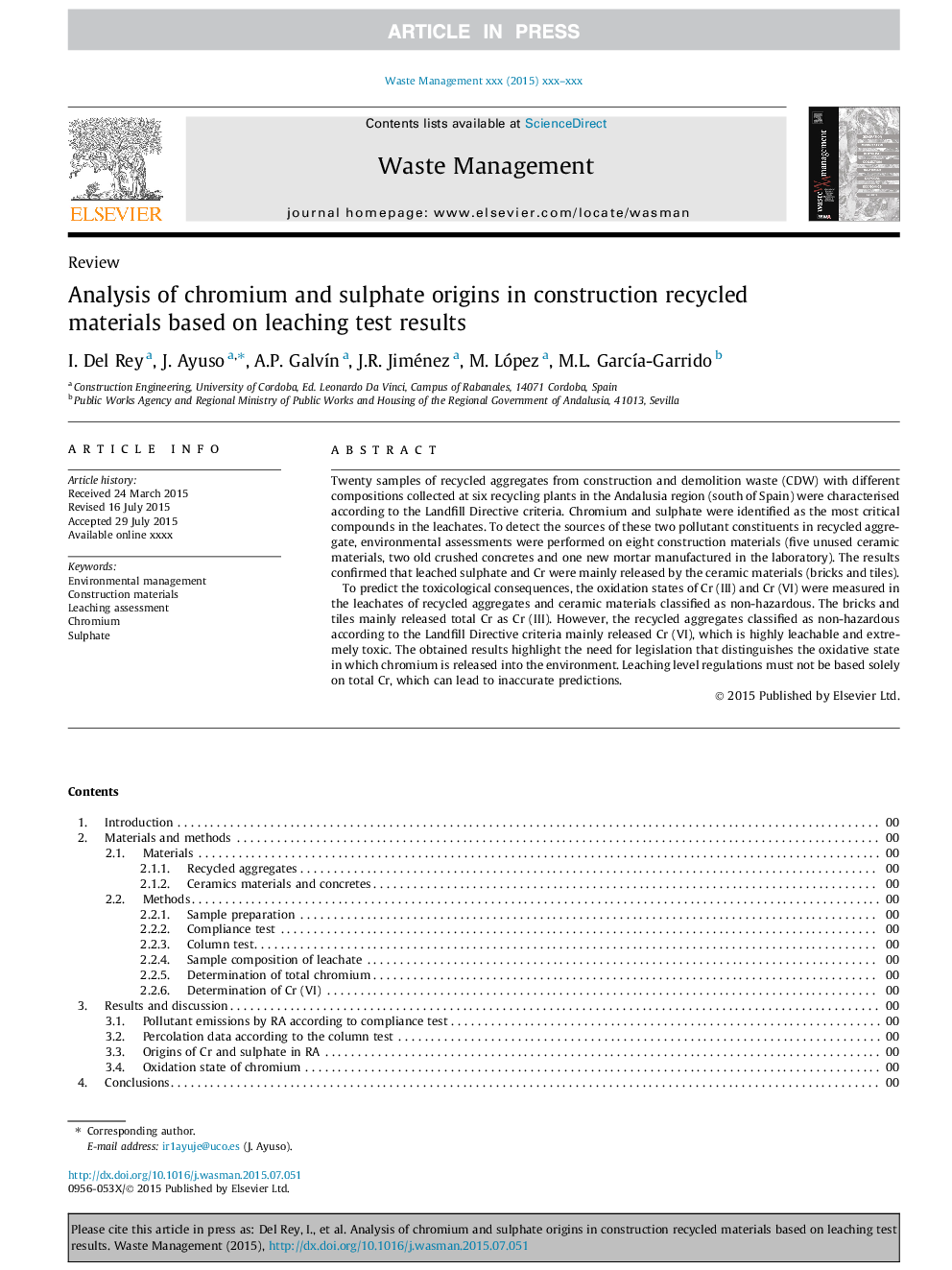| Article ID | Journal | Published Year | Pages | File Type |
|---|---|---|---|---|
| 6354469 | Waste Management | 2015 | 9 Pages |
Abstract
To predict the toxicological consequences, the oxidation states of Cr (III) and Cr (VI) were measured in the leachates of recycled aggregates and ceramic materials classified as non-hazardous. The bricks and tiles mainly released total Cr as Cr (III). However, the recycled aggregates classified as non-hazardous according to the Landfill Directive criteria mainly released Cr (VI), which is highly leachable and extremely toxic. The obtained results highlight the need for legislation that distinguishes the oxidative state in which chromium is released into the environment. Leaching level regulations must not be based solely on total Cr, which can lead to inaccurate predictions.
Related Topics
Physical Sciences and Engineering
Earth and Planetary Sciences
Geotechnical Engineering and Engineering Geology
Authors
I. Del Rey, J. Ayuso, A.P. GalvÃn, J.R. Jiménez, M. López, M.L. GarcÃa-Garrido,
